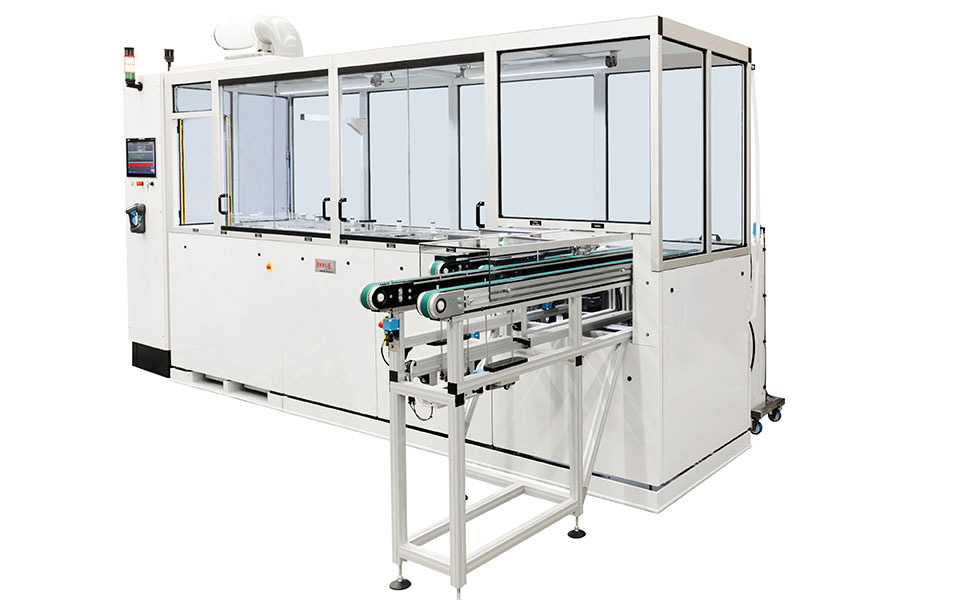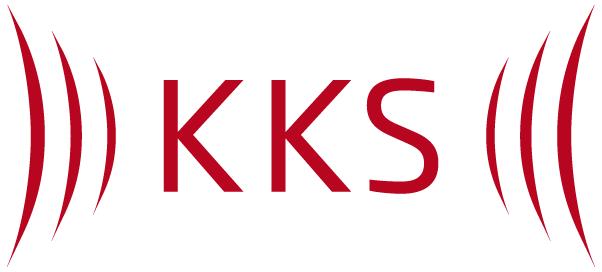Passivation systems for passivation of stainless steel
Products can be passivated in order to improve the corrosion protection of stainless steel alloys after mechanical processing. To increase corrosion resistance, the passive layer can be restored and improved using KKS passivation systems.
Surface passivation is used for most stainless steel implants and medical instruments. In the medical technology industry, citric or nitric acid is generally used for this process.
In the realization of passivation systems, KKS is usually guided by the following standards: ASTM A967, ASTM A380, ASTM F86, ASTM B912.
Effects of passivation with manual and automatic KKS passivation systems
Passivation processes
Different passivation processes can be combined in one system. An individual process sequence can be complemented by additional process steps such as pre-cleaning, rinsing and drying. Pickling or electropolishing can be integrated as pre-processes, depending on the material and the demands on the components.
Graphical representation of the passivation process sequence for the medical technology (example)
Critical process parameters are continuously monitored by the system control and can be documented in a process log for each batch. Components in contact with media and process-specific options such as filtration and circulation systems are made of chemical-resistant materials.
Final rinsing processes with DI water are often operated in a circuit via an additional DI water treatment unit in order to minimize water consumption while monitoring and ensuring the necessary water quality directly on the system. In the medical technology industry, DI water pipes are usually made of PVDF and welded by BCF (bead and crevice free) fusion. For parts drying, hot air dryers can be equipped with appropriate HEPA filter systems and combined with vacuum dryers if required.
KKS passivation systems

The passivation process can be realized after electropolishing of stainless steel or as a stand-alone process. Due to the modular design of the manual and fully automatic passivation systems, further process steps such as pre-cleaning, electropolishing, final rinsing and drying can also be implemented in the same system.
KKS passivation systems are developed and designed according to the specific requirements of the customer. Correct design of the system and the use of suitable materials and proven components ensure both high process stability and long service life.
Effects of passivation with KKS passivation systems
- Restoration or improvement of the corrosion resistance of stainless steel products by strengthening the passive layer
- Removal of foreign metal impurities from surfaces
- Increased service life of components
- A passive oxide layer improves the biocompatibility of products
Special features of KKS passivation tanks
Process tanks with chemicals are equipped with automatic lids and integrated fume extraction units. An integrated gas scrubber prevents corrosive gases and vapors from escaping.
- Temperature sensor for monitoring the tank temperature
- Overtemperature sensor to be doubly safe
- Thermometer-controlled heating elements made of chemical-resistant plastic are installed on the floor of the tank.
- Extraction holes on the upper edge of the passivation tank: To protect the system operator, gases and vapors are extracted from the passivation tank by the gas scrubber.

Peripheral equipment
DI water treatment systems, integrated heating systems (continuous-flow water heaters, heat exchangers), dehumidification modules for efficient and gentle drying or neutralization units for contaminated exhaust air and wastewater: KKS offers suitable accessories for passivation systems that support and guarantee safe and efficient process flows.
Qualified passivation systems form the basis for successful process validation in the regulated environment
KKS has more than ten years’ experience in the qualification of passivation systems. Passivation systems are realized mainly on a customer-specific basis. Equipment qualification (DQ/IQ/OQ) and computer system validation of equipment (CSV) can therefore be carried out as part of the project. This parallel approach by KKS offers another major advantage and huge time savings for our customers.









